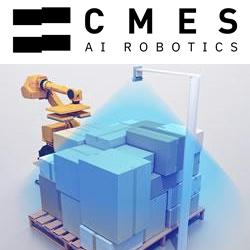NSF grant bolsters OSU's efforts in robotics, artificial intelligence, marine studies
The National Science Foundation has awarded $1 million to five Oregon State University researchers to study the operation of autonomous marine vehicles.
CORVALLIS, Ore. - The National Science Foundation has awarded $1 million to five Oregon State University researchers to study the operation of autonomous marine vehicles.
It also broadens the reach of the OSUs Marine Studies Initiative, a university-wide effort to increase understanding of coastal and ocean systems and promote sustainability on key issues including climate change, food security and safety, natural hazards, renewable energy production and natural resources management.
Geoff Hollinger and Julie A. Adams of the College of Engineering and Jack Barth, Jonathan Nash and Kipp Shearman of the College of Earth, Ocean and Atmospheric Sciences are the principal investigators on the $1 million grant.
Hollinger, the lead PI, is a roboticist, and Adams, an associate director of the CoRIS Institute, is a computer scientist. Barth, the executive director of the Marine Studies Initiative, Nash and Shearman are physical oceanographers who specialize in making observations at sea using autonomous vehicles.
The project builds on cross-campus collaborations that bring engineers and ocean scientists together to produce innovations in OSU-developed ocean-sensing technologies such as ROSS - the robotic oceanographer surface sampler - and advanced underwater glider operations.
The project seeks to increase vehicles "neglect tolerance" - the ability to withstand long periods with little to no communication from a human technician - by improving their autonomy capabilities.
"Underwater exploration using unmanned robotic vehicles has opened up vast new ways of understanding the worlds oceans," Hollinger said. "However, in the current state of practice, human operators must provide specific waypoints for the vehicles to follow, which is both time consuming and inflexible. The research in this project will develop autonomy capabilities that facilitate on-vehicle intelligence, leading to longer duration deployments of unmanned underwater and surface vehicles as well as improving the oceanographic data collected and reducing the cost of these deployments."
The $1 million NSF grant comes on the heels of the $3.6 million the College of Engineering received in robotics-related funding in fiscal year 2017, the nearly $2 million it received the previous year and a recent $6.5 million grant from the Defense Advanced Research Projects Agency to make artificial-intelligence-based systems like autonomous vehicles and robots more trustworthy.
-30-
About the Collaborative Robotics and Intelligent Systems Institute (CoRIS): The OSU College of Engineering established CoRIS in 2017 to advance the theory and design of robotics and artificial intelligence. The institute is committed to exploring the impact of robotics and AI on individuals and society through its three principal impact areas: academics, research, and deployed systems and policy. It is made up of 25 core faculty researchers and 180 graduate students, and another 40 collaborators across the university who apply robotics and AI in their work.
About the OSU College of Earth, Ocean, and Atmospheric Sciences: CEOAS is internationally recognized for its faculty, research and facilities, including more than half a century of going to sea to observe and increase understanding of the worlds oceans. The college is a leader in the study of the Earth as an integrated system, providing scientific understanding to complex environmental challenges.
Featured Product

CMES - AI-Powered 3D Robot Vision
Powered by AI, CMES Robotics enables 3D vision for factory robots. CMES AI vision software enables robots to recognize unstructured, flexible, or deformed objects, pick them up, and loading and unloading. CMES Vision software has been deployed worldwide for random palletization and depalletization along with void filling applications. CMES Robotics automates your warehouse, logistics, and supply chain. For more information, please visit: cmesrobotics.com or email info@cmesrobotics.com.
